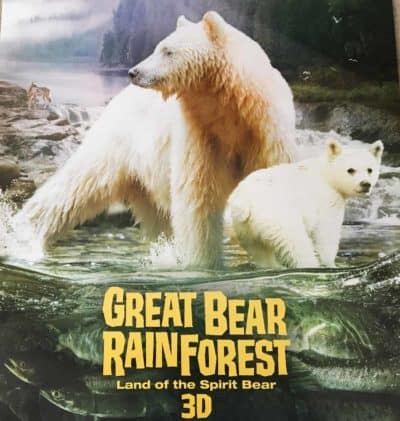

On June 10, I moderated a live Twitter chat with Rossie Clark-Cotton and David Martinez, awardees of the Graduate Diversity Enrichment Program (GDEP). Clark-Cotton is a fifth-year PhD candidate in the Department of Cell Biology at Duke University where she studies how cells track chemical signals, and Martinez received a PhD in Molecular Genetics and Microbiology from Duke University. He is now a postdoctoral fellow at UNC-Chapel Hill. Their two-year, $5,000 GDEP award was granted by the Burroughs Wellcome Fund.
The grant is awarded to underrepresented PhD candidates in North Carolina who are conducting biomedical research (and if this applies to you: applications are open until July 2). For more information on the GDEP grant and to see the perspectives of awardees Clark-Cotton and Martinez, see a recap of the #bwfGDEP chat below:
Welcome to the #bwfGDEP chat where I hope you’ll be able to learn more about the @BWFUND Graduate Diversity Enrichment Program (GDEP) grant award! Use #bwfGDEP to chime in and follow along with the conversation. pic.twitter.com/3HPf6qfTya
— Yasmin Bendaas (@yasminbendaas) June 10, 2019
To start off, I have 5 Qs for @rclarkcotton and @David_RMartinez who are both prior GDEP awardees. Then, we’ll leave the floor open to your questions! Like this post to let me know you’re joining us tonight! #bwfGDEP pic.twitter.com/ZgKexPFLgg
— Yasmin Bendaas (@yasminbendaas) June 10, 2019
Q1: @rclarkcotton & @David_RMartinez Tell us about yourselves! Where are you currently? What about your research? #bwfGDEP pic.twitter.com/EOG6Bk2TT3
— Yasmin Bendaas (@yasminbendaas) June 10, 2019
My name is David Martinez and I obtained my PhD in the @DukeMGM graduate program in Dr. Sallie Permar’s lab. I am now a postdoctoral fellow at @UNCpublichealth in Dr. Ralph Baric’s lab. My research focuses on host-pathogen interactions and I use flaviviruses as models (1/2)
— David R. Martinez, Ph.D. (@David_RMartinez) June 10, 2019
To understand how pathogenic viruses cause disease in humans (2/2) #bwfGDEP
— David R. Martinez, Ph.D. (@David_RMartinez) June 10, 2019
A1: Hi everyone! I’m finishing my fifth year as a PhD student in cell biology at Duke University. I study how cells track chemical signals, and I use a tiny organism called yeast to investigate this #bwfGDEP
— Rossie Clark-Cotton (@rclarkcotton) June 10, 2019
Q2: @rclarkcotton & @David_RMartinez: What year were you awarded the #bwfGDEP grant award and how did it support your graduate success? Any thoughts on the #networking opportunity with other @BWFUND program awardees? pic.twitter.com/jH80fgQKf6
— Yasmin Bendaas (@yasminbendaas) June 10, 2019
A2. I was awarded the #bwfGDEP grant in 2017. This grant supported my research in a number of important ways. Firstly, this grant provided funds to purchase reagents to complete my research, and it also provided travel funds to present my work at key scientific meetings (1/2)
— David R. Martinez, Ph.D. (@David_RMartinez) June 10, 2019
A2. Secondly, the networking opportunities that this award has afforded me are priceless. Thanks to this award I’ve built a network of bright colleagues that are rising stars in their scientific fields. It’s been nice to meet talented #diverse scientists. #bwfGDEP
— David R. Martinez, Ph.D. (@David_RMartinez) June 10, 2019
A2: I was just finishing up my third year when I got the #bwfGDEP award. I had passed my prelims and I was just digging into my project, so I was able to branch out for more exploratory imaging – and not just the aims I’d set forth in my proposal. #bwdGDEP
— Rossie Clark-Cotton (@rclarkcotton) June 10, 2019
A2: But another bonus for me was the network I’ve joined as part of @BWFUND. I’ve participated in some networking events where I’ve met other URM scientists (postdocs and faculty), including a recent networking event where I served on a panel. #bwfGDEP
— Rossie Clark-Cotton (@rclarkcotton) June 10, 2019
Q3: @rclarkcotton and @David_RMartinez: Can you provide any other examples of #enrichment experiences or activities supported by the #bwfGDEP award that positioned you for success in your field? pic.twitter.com/wO5Z4I1utb
— Yasmin Bendaas (@yasminbendaas) June 10, 2019
A3: Definitely! The networking has been such a plus for me! Not only did I help to organize a recent networking event, but I also had the opportunity to write a reflection piece on that for @EducationNC.
— Rossie Clark-Cotton (@rclarkcotton) June 10, 2019
A3: In my @EducationNC piece, I discuss the importance of community, and it’s true! I attended a conference this past week, and I saw a @BWFUND who is a new faculty member at @DukeU and who I first met at a @BWFUND networking event! #bwfGDEP
— Rossie Clark-Cotton (@rclarkcotton) June 10, 2019
A3. Thanks to the #bwfGDEP award, I was able to present my dissertation research at several national and international conferences. Presenting my work in different venues enabled my research to gain visibility before it was submitted for peer-review for publication. (1/2)
— David R. Martinez, Ph.D. (@David_RMartinez) June 10, 2019
A3. Thankfully, my research project funded by the #BwfGDEP is now in press and will be published later this week!! (2/2)
— David R. Martinez, Ph.D. (@David_RMartinez) June 10, 2019
Q4: @rclarkcotton & @David_RMartinez: It might be hard to pick, but what has been the greatest highlight or experience as a result of the #bwfGDEP award? pic.twitter.com/P461wNElCk
— Yasmin Bendaas (@yasminbendaas) June 10, 2019
A4. Sure! Far and away, the highlight for me is the network-building opportunities that @BWFUND provides. The connections I made with other rising star graduate students, postdocs, and junior faculty in the Fall @BWFUND Awardee meeting were crucial for providing a group (1/2)
— David R. Martinez, Ph.D. (@David_RMartinez) June 10, 2019
A4. Of individuals from which I can seek advice. Many of these scientists are at a more advanced stage in their career so it’s nice to have their perspective! #bwfGDEP
— David R. Martinez, Ph.D. (@David_RMartinez) June 10, 2019
A4: For me, the most important feature has been building a network and community, hands down! This makes a difference personally but also builds professional opportunities, as I gain exposure, which gives me more opportunities to share my work and to learn! #bwfGDEP #BWFGDEN
— Rossie Clark-Cotton (@rclarkcotton) June 10, 2019
Q5: @rclarkcotton & @David_RMartinez — Can you share a little about your decision to apply for the #bwfGDEP award and what advice you would offer to other prospective applicants as they consider submitting application? pic.twitter.com/RioWs2l75A
— Yasmin Bendaas (@yasminbendaas) June 10, 2019
A5. Sure! I decided to apply to the #BwfGDEP award for two reasons. Firstly, I needed the funds to perform a key experiment for my project. Secondly, I have always been really impressed by the quality of the research that is done by scientists funded by @BWFUND. (1/2)
— David R. Martinez, Ph.D. (@David_RMartinez) June 10, 2019
A5. My advice is to quickly coordinate (if you haven’t done so already) with your institution’s grants office! And the obvious piece of advice is to apply to the #bwfGDEP award!
— David R. Martinez, Ph.D. (@David_RMartinez) June 10, 2019
A5: That’s easy! My first advice is to talk to your grants management office right away!! They will need to help you with paperwork, and they will be able to help you obtain signatures — so make this your first stop! #bwfGDEP #bwfGDEN
— Rossie Clark-Cotton (@rclarkcotton) June 10, 2019
A5: My grants manager was a huge help! But I needed to give her time to make the necessary contacts to help me. #bwfGDEP #bwfGDEN
— Rossie Clark-Cotton (@rclarkcotton) June 10, 2019
A5: And finally, your mentor has an interest in your success, so ask for help with the scientific proposal. Ask 2 or 3 people to read your personal statement – and give everyone a few days to provide feedback! #bwfGDEP #bwfGDEN
— Rossie Clark-Cotton (@rclarkcotton) June 10, 2019
Q6: Alright it’s open Q time! Do you have any other questions about the #bwfGDEP grant for @rclarkcotton and @David_RMartinez? Reply/comment directly onto this thread with “A6” for your response to be part of the conversation! And don’t forget to use #bwfGDEP :) pic.twitter.com/li0WeDSSEq
— Yasmin Bendaas (@yasminbendaas) June 10, 2019
A6: I’ve got one for you @rclarkcotton & @David_RMartinez! Why has it been helpful to have #bwfGDEP support as a #minority in #STEM?
— Yasmin Bendaas (@yasminbendaas) June 10, 2019
As a #minority in #STEM the @BWFUND has been a huge boost to my career! A unique aspect of being associated with the #BWF is that you become part of a network of the best and the brightest scientists from all over the country. The #BwfGDEP provided this network for me.
— David R. Martinez, Ph.D. (@David_RMartinez) June 10, 2019
A6: In my own case, I am from a small town in Mississippi, and I didn’t know scientists growing up. Having a network of scientists to give me advice – about grants, postdocs, jobs, everything – isn’t just encouraging personally, it is critically professionally! #bwfGDEP #bwdGDEN
— Rossie Clark-Cotton (@rclarkcotton) June 10, 2019
A6: But also, science is really difficult – and we as URMs can often wonder if we’re talented enough to do the work. Talking with others from a similar background can help us to see that everyone struggles – that’s been so important for me. #bwfGDEP #bwfGDEN #BlackAndSTEM
— Rossie Clark-Cotton (@rclarkcotton) June 10, 2019
David and Rossie – As you both know, #bwfgdep was piloted in 2017 and we are now in an open application period for a 2nd cycle. For those prospective applicants who may have started an app but awaiting submission or follow through – any insight on pushing the button by jul 2?
— Alfred M. Mays (@amays_bwfund) June 10, 2019
I would say what I always say with any grant: “you can’t get it if you don’t apply!”. To echo @rclarkcotton, ask your PI for advice, talk to your institutions grants office, and have your colleagues read your proposal. And please reach out to myself or @rclarkcotton for ?s!!
— David R. Martinez, Ph.D. (@David_RMartinez) June 10, 2019
Thanks for joining me and @rclarkcotton & @David_RMartinez everyone! Remember that you can find details of the#bwfGDEP award and the 2019 application cycle (open thru July 2nd) at https://t.co/SPFyFkYo1D pic.twitter.com/oZvXZ3LQJv
— Yasmin Bendaas (@yasminbendaas) June 10, 2019
If you’re interested in applying or learning more about the #bwfGDEP award, you can also reach out to @amays_bwfund @BWFUND! Please continue to use the hashtag #bwfGDEP for us to follow along :) Thanks @rclarkcotton & @David_RMartinez! Have a good night everyone! pic.twitter.com/2q3Xop7baE
— Yasmin Bendaas (@yasminbendaas) June 11, 2019
— David R. Martinez, Ph.D. (@David_RMartinez) June 11, 2019
Editor’s note: The Burroughs Wellcome Fund supports the work of EducationNC.


